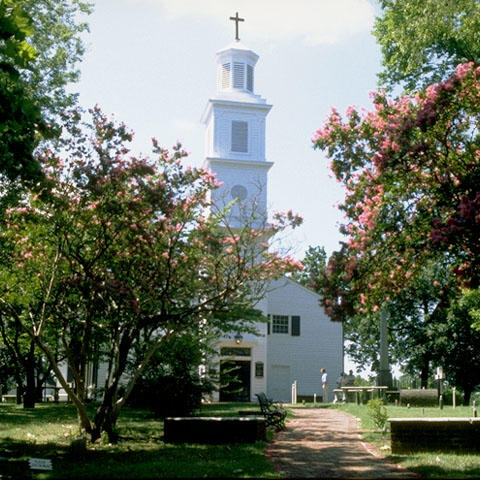
Enlightenment ideals of reason and religious freedom pervaded the American colonial religious landscape. These values were instrumental in the American Revolution and the creation of a nation without an established religion.
View full album
The Enlightenment was a 17th and 18th century international movement in ideas and sensibilities, emphasizing the exercise of critical reason as opposed to intellectual dogmatism. It developed along with the rise of scientific thinking and stressed the importance of nature and the natural order as a source of knowledge. In reaction to the religious wars of Europe, many Enlightenment thinkers defended religious tolerance and religious freedom. A few even ventured into outright religious skepticism. The emphasis on intellectual freedom and individual rights led to a conflict between the advocates of these new ideas and the political and religious establishments in Europe, most dramatically in the French Revolution.
The Enlightenment in America mostly followed the more moderate traditions of the Scottish and English Enlightenments. Americans who read Isaac Newton, John Locke, or Thomas Reid appealed to the innate capacity for reason of common people, though only rarely did they question hierarchies based on gender, race, or class. Many hoped that natural philosophy might provide a way to transcend the differences that arose within America’s exceptionally diverse religious landscape. Leaders such as Thomas Jefferson and Benjamin Franklin translated Enlightenment ideals of liberty, rights, and self-government into the underlying premises of the Declaration of Independence and the U.S. Constitution.
The Enlightenment also bred religious controversy. Plenty of its advocates, many of whom were themselves Christian, often dismissed the new revivalist religion of the Great Awakening as emotionally excessive. Others questioned central tenets of Christian orthodoxy, such as the doctrine of the Trinity. A few became deists, taking nature rather than scripture as the principle revelation of God. Religious conservatives, however, viewed this emphasis on individual reason as corrosive of ecclesiastical authority. And evangelical Protestants worried that such an intellectual approach to faith obstructed the transformation of the heart they preached. It is tempting to cast this controversy in terms of a conflict between those who favored rational religion against those who defended traditionalism or enthusiasm, but the Enlightenment was so pervasive in the colonies that few Americans remained wholly untouched by its spirit. Conservative Anglican apologists presented their denomination as the most reasonable form of Christianity, while dissenting Baptist revivalists maintained that the beginning of true religion was the individual’s free choice.
The struggle to expand religious liberties created an unlikely alliance between Enlightened leaders and evangelical movements. Both wanted to level the playing field so that ideas could compete fairly, though they predicted much different effects. Figures like Thomas Jefferson believed that the most reasonable religion would naturally prevail, which he equated with an undogmatic kind of unitarianism. Evangelical preachers, by contrast, were confident that their own energetic piety would prove the most popular once the privileges of the established churches were revoked. But this disagreement did not prevent a diverse coalition from making common cause during the Revolutionary era. On the state level, Enlightened politicians and evangelical Baptists and Presbyterians worked to pass religious freedom legislation in Virginia, disestablishing the Anglican church. And on the national level, a range of factions agreed on the U.S. Constitution’s First Amendment, guaranteeing the free exercise of religion and prohibiting any federal ecclesiastical establishment. State establishments remained in place, primarily in New England, but even here a combination of enlightened and evangelical ideals gradually worked to achieve a system of religious equality.
This period laid the foundation for a bold experiment in religious freedom, resulting in a degree of religious diversity that few of its early advocates could have imagined. Together, the Revolution and the Constitution laid a foundation for what has come to be called America’s “civil religion” which emphasizes ideals of equality before the law, freedom of conscience, religious tolerance, and religious voluntarism.